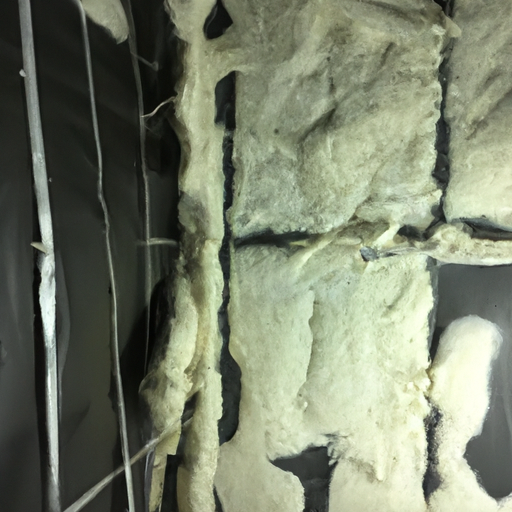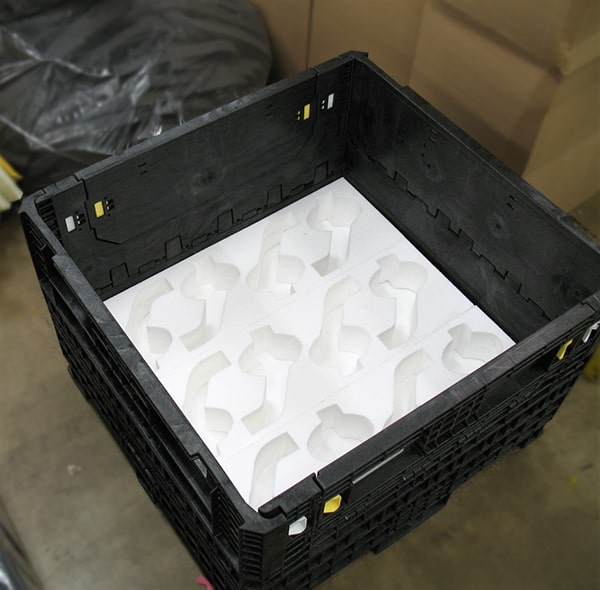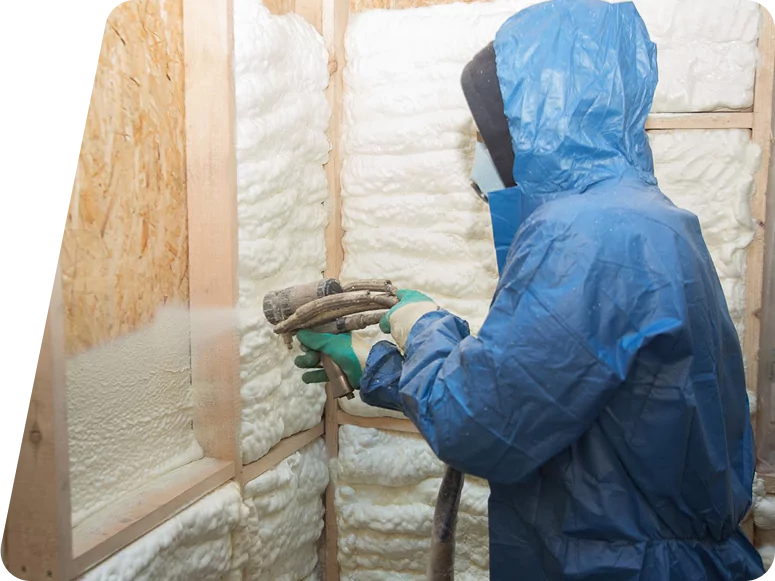
The Ultimate Insulation Solution: Taking Advantage of Spray Foam Insulation
Spray foam insulation is a highly effective and versatile way of making homes and commercial buildings more energy efficient. It provides superior insulation performance compared to traditional insulation materials, and offers a range of benefits that make it an attractive choice for any insulation project. This article will provide an overview of spray foam insulation and its key advantages.
Spray foam insulation is a form of plastic insulation that is sprayed onto surfaces using specialized equipment. After being sprayed, the foam expands to fill in gaps and cracks, providing a tight seal that helps to prevent air infiltration. This insulation is typically applied to walls, ceilings, and other surfaces in order to create an air-tight barrier that prevents heat transfer.
The most significant benefit of spray foam insulation is its energy efficiency. Spray foam is able to effectively prevent heat exchange between the interior and exterior of a building, meaning that less energy is required to keep the area comfortable. This can result in significant cost savings on energy bills. Additionally, spray foam insulation provides superior soundproofing, making it an ideal choice for commercial buildings, such as offices or studios, that require a high level of soundproofing.
In addition to its energy efficiency, spray foam insulation offers a number of other advantages. It is a relatively quick and easy process to install, meaning that it can be applied to a wide range of surfaces without the need for extensive preparation. Furthermore, it is non-toxic, meaning that it is safe for use in any environment. Finally, spray foam insulation can last for decades, meaning that it provides a long-term solution for insulation needs.
In short, spray foam insulation is an excellent solution for improving energy efficiency in homes and commercial buildings. Its superior insulation performance, ease of installation, and long-term durability make it a highly attractive choice for any insulation project.
The Benefits of Spray Foam Insulation: Cost-Effective and Energy Efficient
Spray foam insulation is a cost-effective and energy-efficient way to insulate structures. It is installed by spraying a two-part polyurethane foam onto the walls. This foam expands and hardens, creating an effective barrier against air and moisture infiltration. Spray foam insulation provides a number of benefits, making it a popular choice for both residential and commercial buildings.
One of the primary benefits of spray foam insulation is its cost-effectiveness. Spray foam insulation is one of the most affordable insulation materials on the market, providing superior coverage at a fraction of the cost of traditional materials. Additionally, spray foam insulation is highly durable, making it a long-term investment that will last for many years.
Another benefit of spray foam insulation is its energy efficiency. The foam seals air leaks and prevents moisture infiltration, reducing energy loss. By creating a tight, airtight seal, spray foam insulation helps to reduce heating and cooling costs by up to 50%. This makes it an environmentally friendly option that can help to reduce greenhouse gas emissions.
Finally, spray foam insulation is easy to install and does not require any special tools or skills. It can be applied quickly and easily in any climate and in any area of the home. Additionally, spray foam insulation is fire-resistant and does not harbor mold or mildew, making it a safe, healthy option for homes and businesses.
Overall, spray foam insulation is a cost-effective and energy-efficient way to insulate structures. With its long-term durability and energy savings, it is an excellent choice for both residential and commercial buildings.
Why Spray Foam Insulation Is the Ideal Choice for Your Home
Spray foam insulation is a great choice for any home, offering many advantages over other insulation options. Its superior thermal insulation properties make it a preferred choice for energy efficiency, and it can also protect against air infiltration and moisture. Additionally, spray foam insulation requires fewer layers than most other types of insulation, resulting in less labor and material costs for installation.
Spray foam insulation is composed of two components, polyol resin and isocyanate, which are mixed together and sprayed onto a surface. As it is sprayed, it expands to fill cracks and crevices, creating an airtight seal. This seal helps to reduce heat loss or gain and prevents air infiltration, which can lead to mold and mildew growth. As an added benefit, the airtight seal also reduces noise transfer from outside sources.
When it comes to thermal efficiency, spray foam insulation is a top choice. The insulation has a very high R-value, which measures the resistance of heat flow. This means that it is incredibly effective at keeping heat out during the summer and in during the winter, resulting in lower energy costs for the homeowner. The insulation also has a high vapor permeability, meaning it can allow water vapor to pass through it, preventing the growth of mold and mildew.
Spray foam insulation is also very durable, with an expected lifespan of up to 50 years. It is not affected by moisture or humidity, meaning it will retain its insulating properties for many years. This makes it an ideal choice for homes in areas with high humidity levels, as well as those that experience drastic temperature changes.
Overall, spray foam insulation is an excellent choice for any home. It offers superior thermal efficiency, airtight seals, and long-term durability, all of which can result in lower energy costs and improved indoor air quality.
How Spray Foam Insulation Provides a Barrier Against Air and Moisture Leaks
Spray foam insulation is an effective way to create a barrier against air and moisture leaks. This type of insulation is sprayed directly onto walls and ceilings, forming a seal that helps to reduce the amount of air and moisture that can penetrate the interior of a building. Spray foam insulation is made up of two components: an organic polyurethane base and a propellant. When the two components are combined, they form a foam-like substance that expands and hardens to create a strong barrier against air and moisture.
Spray foam insulation has a higher insulating value than traditional fiberglass insulation. This means that it can provide a more effective barrier against air and moisture leaks. It also has a higher R-value, which measures the amount of thermal resistance provided by an insulation material. The higher the R-value, the more effective the insulation will be.
Spray foam insulation also has a high vapor permeability. This means that it has a high ability to resist the passage of moisture through the insulation material. This makes it an ideal choice for areas prone to humidity, such as basements or attics.
Spray foam insulation also has the ability to seal around electrical outlets and boxes, helping to further reduce air and moisture leaks. This is especially beneficial in areas where there is a high risk of moisture buildup.
Finally, spray foam insulation is low-maintenance and easy to install. It is a cost-effective way to create a strong barrier against air and moisture leaks. It can be applied directly to walls and ceilings, and it requires no additional framing or preparation. This makes it an ideal choice for homes and businesses that want to create a strong barrier against air and moisture leaks without having to spend a lot of time and money on installation.
The Money-Saving Benefits of Spray Foam Insulation: Lowering Your Heating and Cooling Bills
Spray foam insulation is a cost-effective way to improve the energy efficiency of your home by reducing heat loss and increasing energy savings. This type of insulation is typically more expensive than other insulation materials, but the money-saving benefits of spray foam insulation far outweigh the cost.
Spray foam insulation is a closed-cell insulation material that can fill in gaps and cracks in your home to prevent air infiltration. This helps to keep the interior of your home warmer in the winter and cooler in the summer, which in turn reduces your heating and cooling bills. Spray foam insulation also helps to keep moisture out of your home, which can cause mold and other health problems.
In addition to saving money on energy bills, spray foam insulation also adds structural strength to your home. It can provide a more solid foundation and reduce noise levels, making it a great choice for soundproofing. The insulation also helps to reduce the amount of dust and allergens that can get into your home.
Spray foam insulation is an excellent choice for anyone looking to save money on their heating and cooling bills. It is an effective way to improve the energy efficiency of your home without having to replace your existing insulation. Plus, spray foam insulation is designed to last for many years, so you can count on it to provide you with money-saving benefits for years to come.





